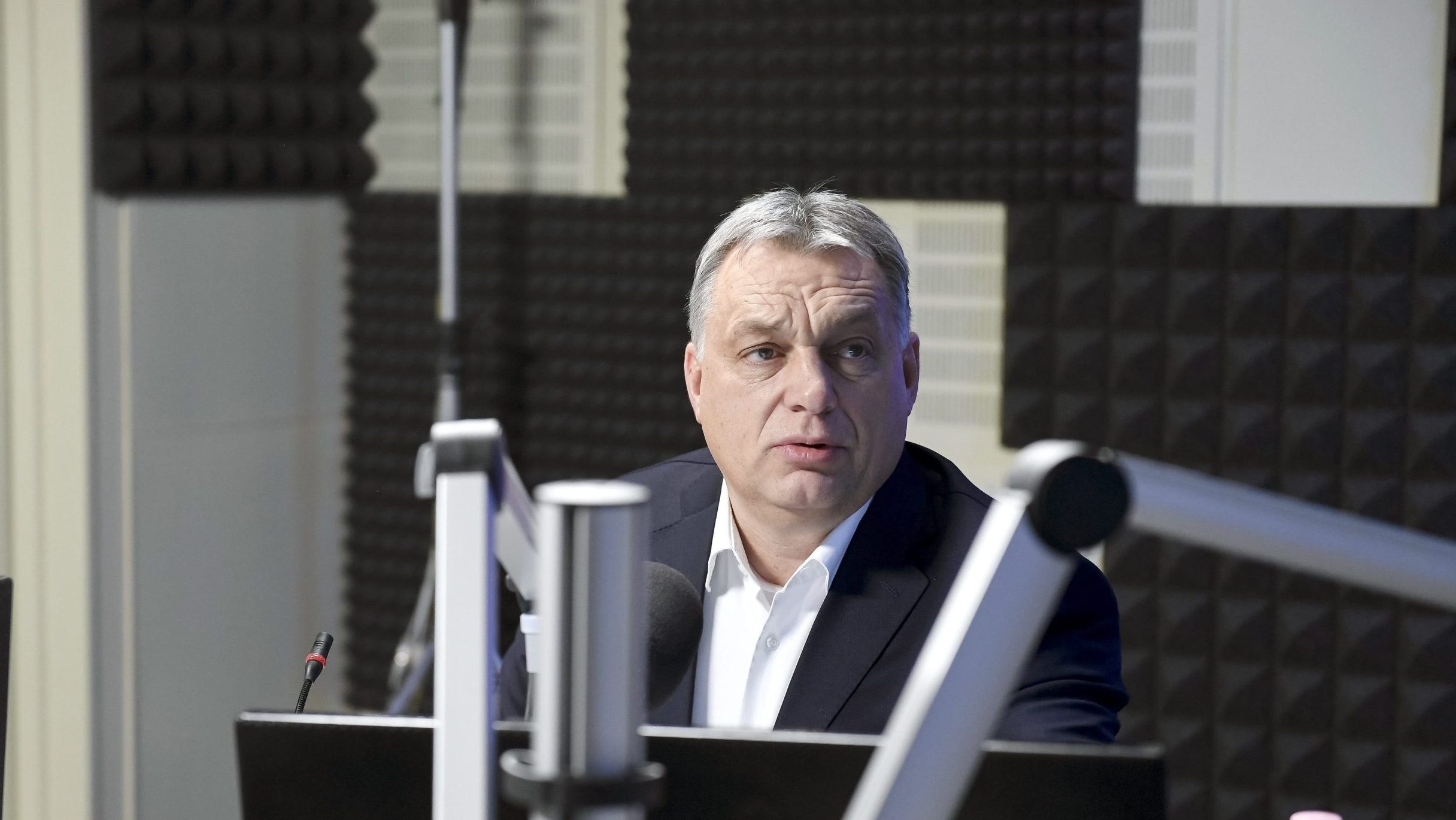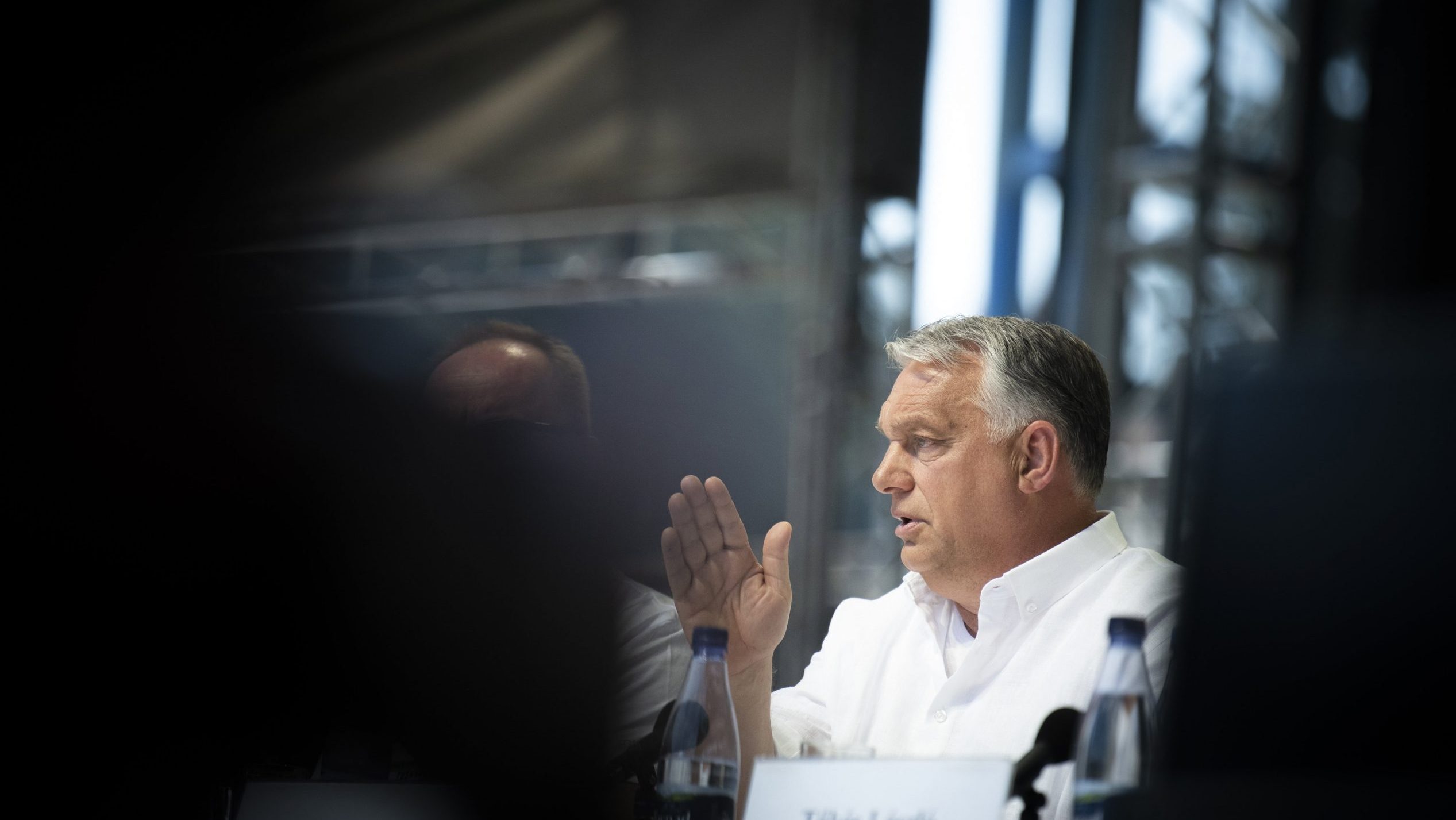
The Prime Minister stressed that at present vaccines sufficient for the vaccination of 35,000 people are available which will be first be given, based on the government’s vaccination plan, to physicians and other health care workers.
He highlighted that if all of a sudden several million doses of vaccines were available, they could be administered at more than ten thousand election points, meaning that citizens would be required to go to the places where they normally cast their votes.
Mr Orbán observed at the same time that, according to the information available at present, we cannot expect vaccines in the millions within a short time as at this time manufacturers themselves are unable to give reliable information about delivery quantities and times.
He stressed that “the vaccines coming from the West are being taken care of by the European Union” as Member States agreed to order vaccines in a single block and Brussels would then distribute the available vaccine doses in a fair and just manner. “I’m not satisfied with the pace because there are manufacturers whose products were available in Canada, Britain and Israel sooner than in the European Union, for instance,” the Prime Minister said, adding that this is not Brussels’ fault, given that they themselves are at the mercy of pharmaceutical companies.
Mr Orbán observed that Member States have the possibility to order vaccines also beyond the EU quota; Hungary, too, is making such efforts similar to Germany. This does not qualify as a violation of the European agreement as it does not prevent Member States from ordering extra vaccines in addition to the priority reserved quota on the basis of bilateral agreements, he added.
The Prime Minister underlined that the cabinet is primarily dealing with vaccines developed in the East, from among which the Russian vaccine will probably not be available in sufficient quantities. At the same time, the Chinese vaccine is more promising; however, at present, that vaccine is not available either. In an ideal scenario, Hungarians will be able to choose themselves whether to be vaccinated with the Western or the Chinese vaccine.
Mr Orbán said he does not want to speculate regarding the schedule of the delivery of vaccines; if “we have many vaccines here, we will rapidly administer many doses,” while if vaccines arrive in Hungary at a slower pace, we will only be able to administer fewer doses at a slower pace.
He stressed that opposition claims that the government does not have a vaccination plan are not true as, in addition to the Chief Medical Officer, he himself stated on a number of occasions in what order people would be vaccinated. Health care workers will be followed by social workers, they will be followed by those who are most at risk, the elderly, while the elderly will be followed by members of law enforcement agencies.
The Prime Minister also said the epidemic taught us that every country must have industrial capacities of its own for the production of vaccines of its own, even if “in peacetime” they are loss-making, and the government has done everything it could to this end.
Mr Orbán said Pfizer’s vaccine is “in actual fact, a Hungarian vaccine”. He highlighted that he had recently spoken to biochemist Katalin Karikó at length and had understood that while a German professor “is also involved in this project, most of those working on this research project are Hungarian,” and therefore “with some exaggeration, we have every reason to say that this is a Hungarian vaccine, involving American money and Hungarian brains”.
The Prime Minister highlighted that Hungarian health care – often spoken about by people from the Left in derogatory terms – has stood its ground in the epidemic much better than the health care systems of several other countries rated much higher. “Here people didn’t die because there was no available care in hospitals, people didn’t have to lie on beds in corridors, here physicians were not required to decide which patient should be given a chance to stay alive due to a shortage of ventilators,” he listed.
He stressed that Hungarian physicians and nurses had rendered an excellent performance, similar to teachers, thanks to whom hundreds of thousands of jobs have been saved as workers have not been compelled to stay at home with their children.
Mr Orbán pointed out it is customary to say that “we are a divided nation, and at times, there are specific examples to underline this notion, but on the whole, when we are in great trouble, it turns out that the Hungarian people have robust capacity for discipline, cohesion and responsibility for one another”. He mentioned as an example that in Hungary there were no demonstrations against the restrictions even if “no one liked them”.
Additionally, we should not forget that the government has implemented a pay rise in health care at a rate and pace that extends beyond the possibilities of the Hungarian economy, he added.
The Prime Minister also mentioned that “we have curbed” the second wave of the coronavirus epidemic, and at this time the task in hand is to prevent the start of a third wave.
Regarding the second wave, he said “we have managed to pin it down, and even if we haven’t yet fully neutralised it, the struggle will now continue on the floor, […] we have taken it down to the wrestling mat”.
Mr Orbán said it is a difficult question whether the restrictions could be eased before the arrival of the vaccine because if the vaccine does not arrive in time, another wave of infections could start.
“Everyone would like to open up, we have an overwhelming desire to rid ourselves of this misery; however, if the timing is not right, a third wave could set in,” he said.


